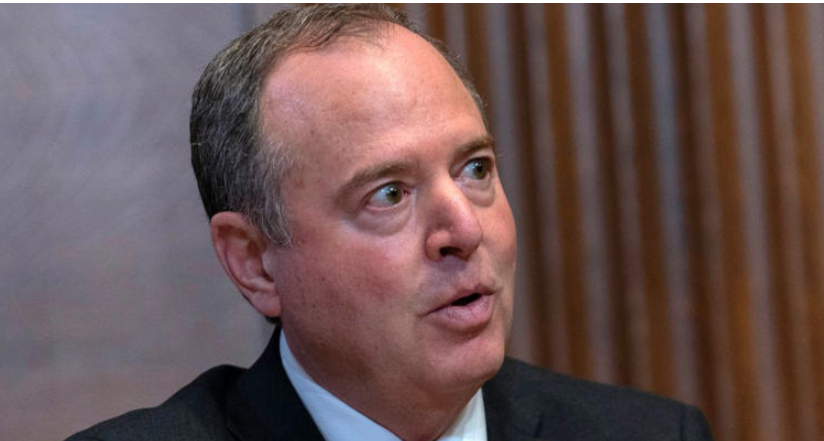A criminal referral submitted by the Federal Housing Finance Agency (FHFA) has triggered fresh allegations against Senator Adam Schiff, centered on claims of mortgage fraud that echo the very accusations levied against former President Donald Trump. Asserting that Schiff may have misrepresented his primary residence on multiple mortgage documents, the referral casts him in the same light as those he once prosecuted.
According to FHFA Director William Pulte, Schiff reportedly falsified bank documents and property records for a Maryland home over a span from approximately 2003 to 2019, listing it repeatedly as his “principal residence” to secure more favorable loan terms.
Simultaneously, he was also claiming his California condo as a primary residence in other filings.
Build Up Your Immunity Naturally! Be ready for the next pandemic.
Save 15% with promo code ‘SAVE” Check out GetZStack.Com
In May 2025, Pulte’s referral explicitly stated that Schiff “appears to have falsified records in order to receive favorable loan terms,” and could potentially face federal charges including bank fraud, wire fraud, mail fraud, and making false statements to a financial institution. Any conviction could carry a prison sentence of up to 20 years.
In 2009, 2011, 2012, and 2013, Schiff refinanced his Maryland home and listed it as his “principal residence.”
At the same time, he simultaneously listed his California condo as his primary residence in separate financing documents.
If these allegations are true, Pulte said, it appears Schiff committed the following federal crimes:
- Bank fraud.
- Making false statements to a financial institution.
- Wire fraud.
- Mail fraud.
Former President Donald Trump seized on the referral, demanding on his Truth Social platform that Schiff be “brought to justice,” branding him a “scam artist” and labeling the misconduct as a “sustained pattern of possible mortgage fraud”.
On Tuesday, Pulte said Fannie Mae’s Financial Crimes Division “concluded that Mr. Schiff has engaged in a sustained pattern of possible Mortgage Fraud.”
Schiff flatly denied wrongdoing, calling the allegations politically motivated retaliation. He insisted that lenders knew of his dual-residence status in both California and Maryland and asserted that both properties were used year-round—not as vacation homes. His spokesperson stated that California and Maryland addresses were declared as primary residences “to distinguish them from vacation property”.
Observers note a stark irony: Schiff was previously instrumental in leading the first impeachment of Trump in 2020 over alleged abuses of executive power yet now stands accused of financial misrepresentation by the same parties he once prosecuted.
Independent legal analysts confirm that mortgage fraud is prosecuted regularly, but few cases involve sitting members of the legislature. Barbara McQuade, former U.S. attorney and law professor, remarked that the timing—amid a pattern targeting Trump critics—raises serious questions about political motivation.
Conservative observers, particularly those with a Christian worldview, emphasize the importance of accountability and consistency under the law. Some Christian commentators see the referral as a form of moral reckoning—or divine justice—manifest when public figures accused of wrongdoing themselves face scrutiny.
The allegation draws a parallel to New York Attorney General Letitia James, who pursued civil fraud litigation against Trump in 2022 but now faces a similar FHFA criminal referral over mortgage filings on properties in New York and Virginia. James has likewise denied wrongdoing, denouncing the referral as political retribution.
Schiff’s dual listing of residences was first publicly flagged by CNN in 2023, revealing that he owned a large Maryland home and a smaller Burbank condo. Experts interviewed at that time suggested he was “likely not in any legal jeopardy”.
Proponents of conservative Christian values argue that public servants must model integrity; accusations of fraud—real or staged—should be confronted honestly. For them, the case against Schiff offers a test of whether the Department of Justice applies the same standards regardless of political affiliation.
Critics of the referral see the move as another step in a broader pattern of retribution. Since his 2024 election win, Trump has repeatedly directed accusations, criminal referrals, or investigations toward key Democratic opponents, framing each as an effort to restore justice and root out corruption.
Schiff’s response on social media underscored his defiance: “This baseless attempt at political retribution won’t stop me from holding him accountable,” he wrote. He framed the allegations as part of a long-running smear campaign tied to his role in impeachment proceedings.
For now, neither DOJ nor FHFA have publicly confirmed an active criminal investigation, and no court filings have been made. Until formal charges or indictments are issued, the matter remains unresolved. Nonetheless, the contrast with Democratic prosecutions against Trump makes the situation dangerously symbolic.
Some conservative Christians see this junction as a moment for reflection on the seriousness of public office and the spiritual dimension of ethical accountability. If the referral leads to charges, it may validate concerns about hypocrisy among political elites.
This developing scandal underscores enduring themes: dual standards, political vendettas, and shifting fortunes when public accusations circle back. Schiff may have once stood as a symbol of Democratic opposition to perceived lawlessness; now he may find himself facing the same scrutiny under which he helped convict others—raising the question, who indeed must answer for their actions?






